Related Research Articles
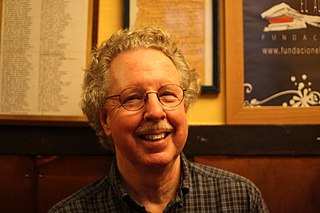
Langdon Winner is Thomas Phelan Chair of Humanities and Social Sciences in the Department of Science and Technology Studies at Rensselaer Polytechnic Institute, Troy, New York.

Science studies is an interdisciplinary research area that seeks to situate scientific expertise in broad social, historical, and philosophical contexts. It uses various methods to analyze the production, representation and reception of scientific knowledge and its epistemic and semiotic role.

Science and technology studies (STS) or science, technology, and society is an interdisciplinary field that examines the creation, development, and consequences of science and technology in their historical, cultural, and social contexts.

Economic sociology is the study of the social cause and effect of various economic phenomena. The field can be broadly divided into a classical period and a contemporary one, known as "new economic sociology".

The sociology of scientific knowledge (SSK) is the study of science as a social activity, especially dealing with "the social conditions and effects of science, and with the social structures and processes of scientific activity." The sociology of scientific ignorance (SSI) is complementary to the sociology of scientific knowledge. For comparison, the sociology of knowledge studies the impact of human knowledge and the prevailing ideas on societies and relations between knowledge and the social context within which it arises.
The strong programme or strong sociology is a variety of the sociology of scientific knowledge (SSK) particularly associated with David Bloor, Barry Barnes, Harry Collins, Donald A. MacKenzie, and John Henry. The strong programme's influence on science and technology studies is credited as being unparalleled. The largely Edinburgh-based school of thought has illustrated how the existence of a scientific community, bound together by allegiance to a shared paradigm, is a prerequisite for normal scientific activity.

Harry Collins, FLSW, is a British sociologist of science at the School of Social Sciences, Cardiff University, Wales. In 2012 he was elected a Fellow of the British Academy. In 2013, he was elected a Fellow of the Learned Society of Wales.
Michel Callon is a professor of sociology at the École des mines de Paris and member of the Centre de sociologie de l'innovation. He is an author in the field of Science and Technology Studies and one of the leading proponents of actor–network theory (ANT) with Bruno Latour.

Social studies of finance is an interdisciplinary research area that combines perspectives from anthropology, economic sociology, science and technology studies, international political economy, behavioral finance, and cultural studies in the study of financial markets and financial instruments. Work in social studies of finance emphasizes the social and cultural dimensions of financial activities, but focuses also on technical and economic dimensions such as pricing and trading.
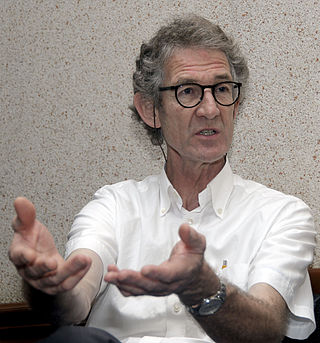
Wiebe E. Bijker is a Dutch professor Emeritus, former chair of the Department of Social Science and Technology at Maastricht University in the Netherlands.
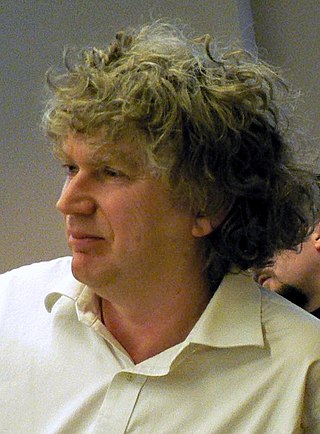
Trevor J. Pinch was a British sociologist, part-time musician and chair of the science and technology studies department at Cornell University. In 2018, he won the J.D. Bernal Prize from the Society for Social Studies of Science for "distinguished contributions to Science and Technology Studies over the course of [a] career."
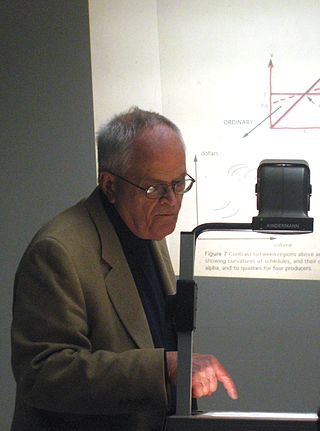
Harrison Colyar White is the emeritus Giddings Professor of Sociology at Columbia University. White played an influential role in the “Harvard Revolution” in social networks and the New York School of relational sociology. He is credited with the development of a number of mathematical models of social structure including vacancy chains and blockmodels. He has been a leader of a revolution in sociology that is still in process, using models of social structure that are based on patterns of relations instead of the attributes and attitudes of individuals.

Stephen William Woolgar is a British sociologist. He has worked closely with Bruno Latour, with whom he wrote Laboratory Life: The Construction of Scientific Facts (1979).

Paul Dourish is a computer scientist best known for his work and research at the intersection of computer science and social science. Born in Scotland, he holds the Steckler Endowed Chair of Information and Computer Science at the University of California, Irvine, where he joined the faculty in 2000, and where he directs the Steckler Center for Responsible, Ethical, and Accessible Technology. He is a Fellow of the AAAS, the ACM, and the BCS, and is a two-time winner of the ACM CSCW "Lasting Impact" award, in 2016 and 2021.
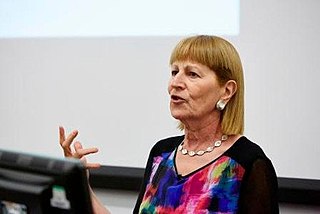
Judy Wajcman, is the Anthony Giddens Professor of Sociology at the London School of Economics and Political Science. She is the Principal Investigator of the Women in Data Science and AI project at The Alan Turing Institute. She is also a visiting professor at the Oxford Internet Institute. Her scholarly interests encompass the sociology of work, science and technology studies, gender theory, and organizational analysis. Her work has been translated into French, German, Greek, Italian, Korean, Japanese, Portuguese, Russian, Chinese and Spanish. Prior to joining the LSE in 2009, she was a Professor of Sociology in the Research School of Social Sciences at the Australian National University. She was the first woman to be appointed the Norman Laski Research Fellow (1978–80) at St. John's College, Cambridge. In 1997 she was elected Fellow of the Academy of the Social Sciences in Australia.

Social technology is a way of using human, intellectual and digital resources in order to influence social processes. For example, one might use social technology to ease social procedures via social software and social hardware, which might include the use of computers and information technology for governmental procedures or business practices. It has historically referred to two meanings: as a term related to social engineering, a meaning that began in the 19th century, and as a description of social software, a meaning that began in the early 21st century. Social technology is also split between human-oriented technologies and artifact-oriented technologies.
Michael Joseph Mulkay is a retired British sociologist of science.
Engineering studies is an interdisciplinary branch of social sciences and humanities devoted to the study of engineers and their activities, often considered a part of science and technology studies (STS), and intersecting with and drawing from engineering education research. Studying engineers refers among other to the history and the sociology of their profession, its institutionalization and organization, the social composition and structure of the population of engineers, their training, their trajectory, etc. A subfield is for instance Women in engineering. Studying engineering refers to the study of engineering activities and practices, their knowledge and ontologies, their role into the society, their engagement.
Urban informatics refers to the study of people creating, applying and using information and communication technology and data in the context of cities and urban environments. It sits at the conjunction of urban science, geomatics, and informatics, with an ultimate goal of creating more smart and sustainable cities. Various definitions are available, some provided in the Definitions section.
The sociology of valuation is an emerging area of study focusing on the tools, models, processes, politics, cultural differences and other inputs and outcomes of valuation.
References
- ↑ "MacKenzie, Donald A." Library of Congress. Retrieved 13 February 2015.
data view p. (b. 03/05/1950)